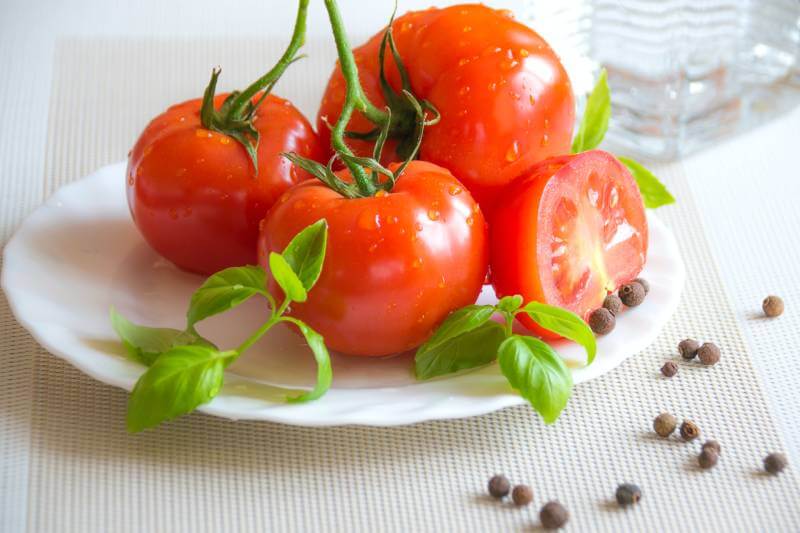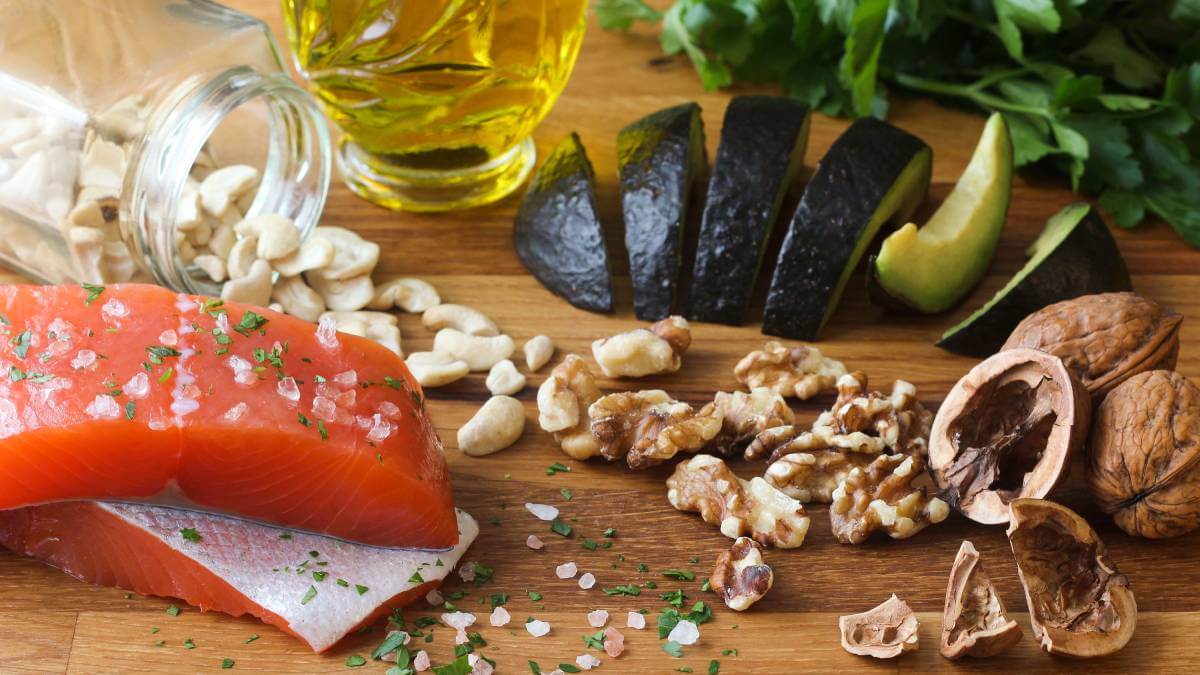Ask any skincare enthusiast and they’ll likely list a bunch of trendy pampering ingredients they slather on their skin – morning and night – to fight the signs of ageing.
But what you put into your body can be just as, if not more, important as expensive anti-wrinkle creams and oils.
Ageing is both a privilege and a completely normal part of life; as you get older, the body’s production of collagen decreases. Environmental factors such as gravity and ultraviolet (UV) light from the sun, can prematurely age skin, as well as certain lifestyle habits, such as smoking.
Depriving your body of nutrient-rich foods can also affect the strength of your skin. From vegetables to fish, we’ve found some key foods that can’t turn back the clock, but have properties that may help you get softer, more youthful looking skin.
1. Tomatoes

Fresh or tinned, tomatoes are super delicious when stirred into bolognaise or tossed in a salad, and can also help fight UV-induced damage.
“Tomatoes contain a natural pigment called lycopene, which is also found in red capsicums,” says nutritionist Ruth Tongue. “This pigment helps protect the skin from sun damage and boosts collagen production, making skin appear plumper and more youthful.”
You don’t always have to splash out on fresh tomatoes either, as studies have found that our bodies can absorb lycopene from plain old tomato paste too.
2. Oily fish
As we get older, our skin loses the ability to effectively retain water in the epidermis – the outermost layer of the skin. Ms Tongue explains that this is because the skin cell membranes that trap the moisture start to lose their strength.
“Oily fish – such as sardines, salmon, tuna steaks, mackerel and anchovies – increase skin cell membrane strength and suppleness, helping to reduce the visible signs of ageing,” she says.
There are other key benefits too. “The omega-3 fatty acids found in these fish help to protect the heart and brain from age induced damage and deterioration,” she adds.
3. Nuts
“Most nuts, but especially almonds, are a great source of vitamin E,” says Ms Tongue. “Inflammation is a fundamental characteristic of ageing and vitamin E works as a powerful anti-inflammatory.” Many major diseases – including cancer, heart disease and diabetes – have been linked to chronic inflammation.
“Remember that the best sources of vitamins are always whole foods rather than supplements – and taking too much vitamin E can have a harmful effect on the body,” she warns.
4. Eggs
A diet rich in eggs might also have skin benefits.
“Eggs are a great source of sulphur – essential for collagen production in the body,” says Ms Tongue, who likes to think of them as ‘nature’s botox’. “Sulphur also increases the production of another key anti-ageing, anti-inflammatory in the body called glutathione, too.”
5. Berries
Beyond tasting great, berries have a lot going on in the skin-boosting department.
“Berries are packed with vitamin C, as well as other antioxidants,” says Ms Tongue. “As well as protecting your cells, these plant compounds may reduce disease risk and have been shown to reduce some of the damaging oxidation seen in ageing cells.”
She says to try to eat berries when in season to help cut your carbon footprint, or buy them frozen.
How many of these foods do you eat often? How do yo get them into your diet? Let us know in the comments section below.
Also read: Touted as an ‘anti-ageing miracle’, but is it?
– With PA


There is also more lycopene in tomato sauce than in fresh tomatoes, so splash it on, but remmeber there is salt and sugar uiin the sauyce; aldo Almonds are good for reducing LDL cholesterol levels, (Low density lipoprotein ) which is not good for you